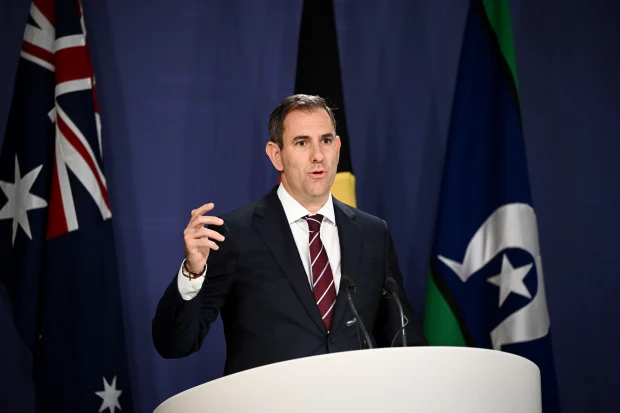
Article by Geoff Culbert, courtesy of The Australian Financial Review.
After a year in which a chorus of voices has constantly talked down the role of business, it was refreshing to hear Treasurer Jim Chalmers note that “the best kind of growth is private sector-led”.
This is a step in the right direction. The next step is to have an honest conversation about what it’s going to take to make it happen.
As many chief executives pointed out in the AFR Weekend’s Chanticleer CEO poll, we have consistently made life harder for businesses with the responsibility of driving growth, productivity and competitiveness.

As we race towards the end of the year, there’s an unfortunate sense of circularity in the way this year has unfolded for anyone trying to run a business and employ people in Australia.
We began the year with new legislation that makes offering casual jobs riskier, and massively boosted union powers and presence at work, regardless of whether workers want it.
We’ve just gone through weeks of near empty supermarket shelves in Melbourne, thanks to aggressive blockades that were rejecting productivity as the quid pro quo for substantially higher pay.
We’re ending the year with the Pilbara region, the crown jewel of Australian jobs, productivity and national wealth, on the cusp of forced reunionisation through new multi-employer bargaining laws. This is despite that people who actually work there have already chosen quality pay and work over conflict, and successfully struck deals with their employers for years.
The race backwards on employment laws isn’t the only thing preventing businesses from growing, hiring and generating Australian national wealth.
Many have also been staggering under the weight of input prices, as well as skills shortages that have made everyone from baristas to carpenters hard to find. The cracks are starting to show in the record number of businesses going bust each month, and companies increasingly deciding to invest billions overseas rather than in Australia.
If the private sector is going to lead the recovery, this has to change.
We are less than six months from the federal election, and it’s time to start thinking about the big reforms we need to go after to turn around our lagging productivity and competitiveness.
Tax reform
My sense is that the electorate understands the need for significant and durable reform over quick, inflationary sugar-hits. Getting back to basics and economic fundamentals is becoming a more and more attractive political proposition. We saw this in the recent Queensland election, which saw voters pass up state-owned petrol stations and free lunches for a more rational, long-term proposition.
South Australia is flourishing under a premier who proudly states his government is “unashamedly pro-business” and is acting like it. To its credit, the federal Labor government has been pragmatic in its approach to China and resurrected our relationship. Drawn-out conflict with our biggest trading partner never made economic sense, and thousands of Australian businesses that trade with China have now come off life support.
Right now, the polling shows that close to a third of Australians plan to vote for someone other than the two major parties. It’s why we are staring down the barrel of a minority government next year.
It’s also why the field is wide open for anyone willing to tackle the big issues with meaningful reform. The electorate is ready to embrace it, and vote for it.
Over the past month, the Business Council of Australia put forward practical solutions to challenges such as housing and productivity growth. These include ridding us of productivity-sapping stamp duty and payroll taxes, and harmonising some of our taxes and regulations so they’re the same state-to-state. In the lead-up to the election we will put forward more ideas on how to solve the cost-of living crisis, skills shortages and the challenges in the care economy.
Much of these are contingent on federal funding of state-based reforms which can cut back regulation and allow our economy to flourish again. That’s why the council fully supports the government’s recently announced National Productivity Fund. It’s a big idea, and we need more of them.
Australians are ready to vote for big ideas. They see through short-termism. They see through inflationary handouts. They don’t want bigger government, more regulation and higher taxes. They are ready to vote for policies of substance. They want a long-term vision.
This is the mission for 2025. Let’s make it easier for businesses to invest. Let’s make it easier to hire people, not harder. Let’s make a dollar invested in Australia more attractive than a dollar invested offshore. The private sector is ready to lead the recovery, but it needs help. Hopefully, one or more of the major parties will genuinely take up this challenge. Otherwise, we’re staring down three years of minority government, with niche interest groups holding the balance of power. There will be no private-sector-led recovery under that scenario. As a nation, we can’t afford that.
Geoff Culbert is president of the Business Council of Australia.
